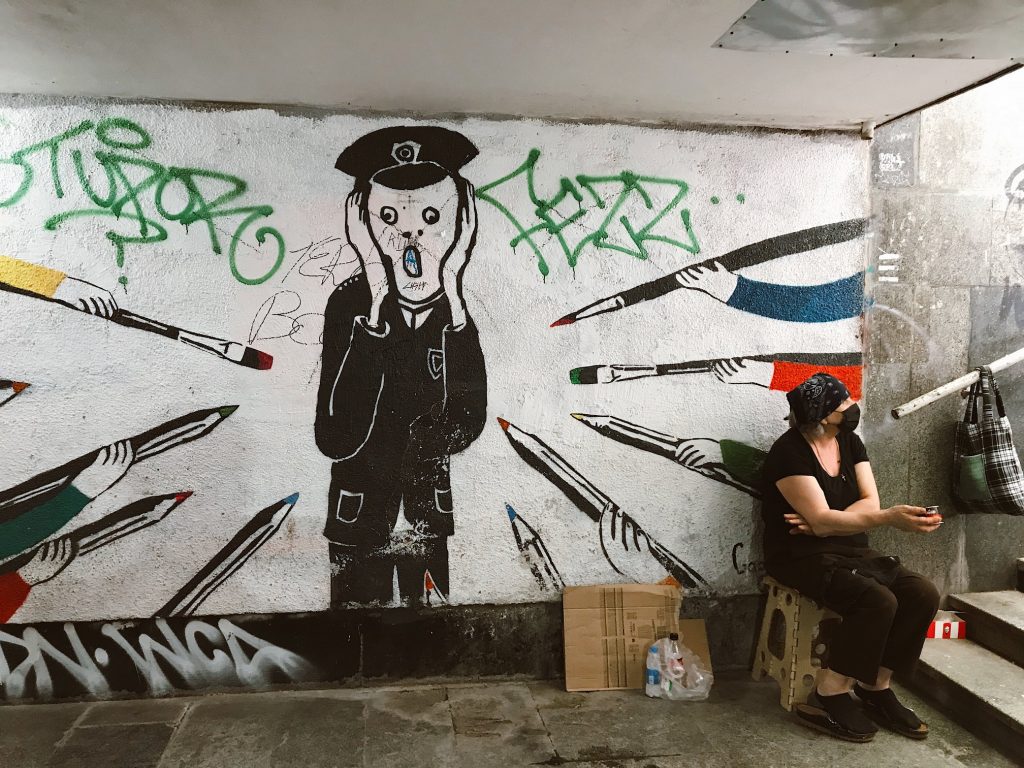11-year old's death in Georgia – suicide or murder?
An 11-year-old boy was found dead in a village in Terjola municipality in the west of Georgia on 23 August.
The ministry of internal affairs has started an investigation as to whether he was ‘brought to suicide’, and the boy’s father has been detained.
Family and neighbours of the boy say that the father often beat his young son and the child probably couldn’t live with the abuse.
Relatives suspect that the father may have beaten his son to death and then staged it to look like a suicide. The question is, was the boy killed, or did he take his own life?
What happened?
The deceased 11-year-old boy lived with his father and other members of their family.
He was only a year old when his mother went to Greece for work and left him with his father. His mother never came back to Georgia, but she sent money to the family every month.
Relatives and neighbours state that the father, who was a heavy drinker, regularly beat his wife, and then beat his son after the wife left.
On that tragic day, they heard the boy’s crying and called 112 (Georgia’s 999). The police arrived on the scene, where they found the boy already dead.
The teachers at his school said that he was a very diligent, kind and happy child, and that he would never take his own life.
The boy’s grandmother also confirmed that his father, drunk, would beat him constantly and treat him inhumanely.
According to the grandmother, on the day of his death the boy asked his aunt and grandmother to remain close to the house, since he was afraid of his father, but not to come inside so as not to anger him.
The grandmother also said that the father had called his wife the day before the incident and threatened her, saying that if she didn’t send him money, “she would never hear her son’s voice again”.

The boy’s relatives are requesting the case be requalified as premeditated murder. The boy’s neighbours and relatives bring up one other important fact: they say that the police were often called on the father for beating his child, so the police knew all about the child abuse in the family, but did nothing to protect the young boy, nor did they ever tell any social services about the problem.
Who is to blame?
Public Defender of Georgia Nino Lomjaria the said that responsibility for the boy’s death lies on all those who “knew about the child abuse, did not protect the child and left him in the hands of a criminal”.
According to Lomjaria, children in Georgia are left to face violence alone within their families and society.
“They don’t know who to turn to or what to ask for, because no one has taught them at school. They get no hope from those around them, because nobody listens to a child and even fewer people believe one. Social services don’t have enough resources, and human rights organisations don’t have the qualifications … to prevent child abuse”.
Lomjaria says the child care/defence system has a serious problem. There is no effective support system for children suffering from child abuse at home, and very few psychologists work with them. Initiatives supporting education on the rights of children or how to protect against child abuse are held back for religious or nationalistic reasons.
• Almost 30,000 Georgian children do not have access to soap and are unable to wash at home, says UNICEF report
“Children in Georgia don’t know who to turn to for help when they suffer from harsh treatment and beatings. There is no dedicated hotline for children in the country, although the number 1505 has been set up for that purpose. But anyone who calls that number has to wait for a very long time, and the operators have no idea how to talk to children.
That child should have known who to turn to for help.
He should have had a lawyer to protect him”, wrote Anna Arganashvili, a human rights activist.
The 11-year-old boy’s death is a hot topic on social media.
“They should arrest the relatives along with the dad, since they all knew and said nothing!”
“The abuse was going on for months and the neighbours told the police on the day of the suicide? Is that really it?”
“It’s not surprising. We all know, and a UNICEF study says so, that authoritarianism is the norm in our society. ‘So what, he beats him sometimes’, ‘Why spare the rod…’, and so on…”
“The kid called and asked for help. The police knew. The school knew. We’re a society of murderers. How did we get here?”
“Before blaming those people, think about whether the police are to blame, and that the hotline for abuse victims only works until six o’clock, and you have to pay for it”, wrote Facebook users.
What does the evidence tell us?
The 11-year-old boy’s death has led to an investigation on bringing to suicide by a family member.
If it can be established that the child committed suicide, then the father, who is accused of child abuse, may be sentenced to 2-4 years’ imprisonment.
At the same time, human rights organisations are making sure that those who believe it was murder are included in the investigation.
The Public Defender has gotten involved in the case.
“This incident, whether it was a suicide or a premeditated murder, is the result of a systemic issue.
“As we see, the premeditated physical and emotional violence perpetrated against the child was consistent. The people around the child and, probably, the police were also aware of it. We will find out what the police had learned, and whether the police had informed social services about it”, said Nino Lomjaria.




















